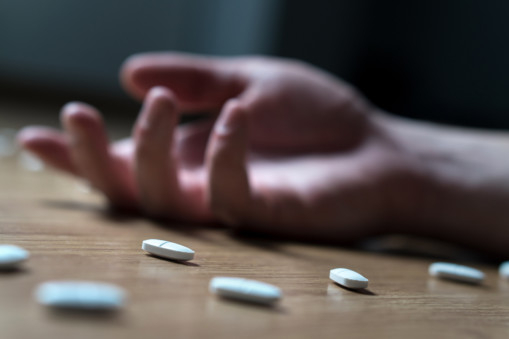
On my Disney cruise, my eternal bathroom door problem was finally solved. You see, it has always been difficult to figure out how to get out of the bathroom without touching the handle, which other people might have touched without washing their hands? I always take a piece of toilet paper or paper towel. Often, though, neither is near the door. So I have to go get it from inside a stall or from near the sinks, opening the door with the contaminated piece in my hand and with no place to then discard it.
And on the Disney ship? A sign on the door says everyone should leave the bathroom without touching the handle. There is a paper towel dispenser next to the door and a trashcan directly in front. Perfect — a paranoiac’s paradise!
I’m scared of germs, of getting sick, becoming infected, even of catching diseases that aren’t transmitted by contagion: brain tumours, lymphoma, oesophageal carcinoma, hearing loss, pharyngitis. I’ve spent hours researching these diseases online and, sadly, in waiting rooms for check-ups. I’m well-acquainted with pleural effusion, all complications of pneumonia and Epstein-Barr virus, the symptoms of rheumatism and various theories for measuring the pH of air.
I always travel with antibiotics, many varieties for different applications.
Hypochondria is defined as a mental disorder that can occur both alone and with other disorders. Those affected are especially preoccupied by their bodies and increasingly afraid of disease. Time and again, they are earnestly convinced that they are sick, and the conviction is so great that it impairs their lives. One in 15 Germans suffer from a fear of disease. Half of them are considered hypochondriacs. I’m somewhere in the middle.
For the entire time that I was in the Caribbean on vacation, I was convinced I had lymphoma. I lay in bed all night long, awake, feeling my lymph nodes. I’ve been in a hospital in Mallorca, and at an infirmary at Disneyland with a sore throat, demanding antibacterial lozenges to prevent tonsillitis. In any case, I always travel with antibiotics, many varieties for different applications, and with remedies for tension headaches and migraines as well as Vomex, Iberogast, Paspertin, Perenterol and other meds. When I go to the United States, I always make a pit-stop at the large drugstores there for over-the-counter medicine, vitamins and nutritional supplements.
Something else, of course, lies behind my condition. It is said that hypochondria arises from negative experiences with sickness or death and that the disorder is related to how a person’s family deals with these issues. It has something to do with fears and can be partly conditioned by genetics. Hypochondria is especially common in people in creative professions: Charlie Chaplin was a famous victim of the disorder. I can usually trace my recurring, spiralling thoughts back to their source, but that does not mean I can often get them under control. Other times, I can objectively tell whether my concerns are real or not, but then I think to myself, “sometimes, it is cancer after all. What if that’s the case now?”
My everyday life, mostly in winter, is exhausting. Door handles are a horror. Metal is a bit better than plastic because I am convinced that germs don’t live as long on metal. I read that once. I read a lot about these topics, always on WebMD. I’d rather let a subway leave without me so I can sit in the next empty one, without having to hold on to the plastic handrails. I also wait for someone else to open the door.
Airplanes are also terrible. I learned this from articles with titles like, “You don’t know where most bacteria lurk.” Worst are the seat pockets because people stick their used tissues there. The folding tray tables are bad, too, because some parents change their babies’ diapers on them. When possible, I don’t use either.
Despite all this, I’m not sick less often than anyone else.
Aisle seats are the most hazardous, because everybody walking by touches the armrest, leaving their germs. On longer flights, I take an aspirin to thin the blood against thrombosis. I once even gave myself an anti-thrombosis injection, but it was so terrible I stopped.
I read articles that say antibacterial gel is ineffective. Nevertheless, I can’t eat out without using it first. When I buy something at a bakery, I watch the sales clerks closely to make sure they don’t touch the money or my bread with their bare hands. If my coworker has an eye infection, I know what to do, I’ve Googled it. My disinfectant spray empties quickly. When I go to the bathroom, I use the stall closest to the entrance — statistically, it is the one most seldom used. Of course, I regularly disinfect my phone, avoid shaking hands and know the effects of various dietary supplements.
Despite all this, I’m not sick less often than anyone else. I ultimately just make it harder for myself in sickness — and in health. Sure, I have learned a lot. Recently, I learned that there is a tapeworm found in dogs that can also attack the human brain, causing headaches, confusion, dizziness. And much worse.
Yes, I do have a dog anyway. But come to think of it, I’m starting to feel some pressure behind my eyes.
–Worldcrunch/New York Times News Service












